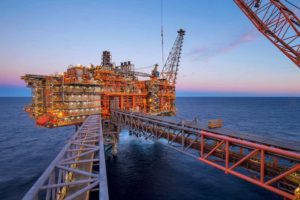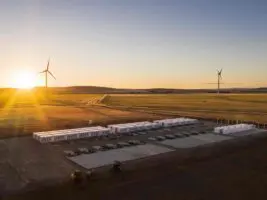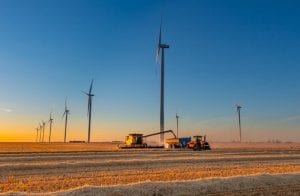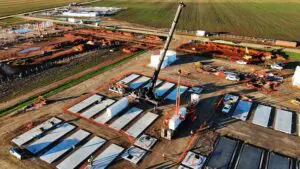Oil and gas giant Woodside is being taken to court over its plans to develop the Scarborough gas field, a project that environment groups argue could jeopardise the health of the Great Barrier Reef.
On Tuesday, the Australian Conservation Foundation launched proceedings in the Federal Court in an attempt to bring a halt to the Scarborough project until its potential impacts on the Great Barrier Reef are assessed under federal environment laws.
Woodside has committed to spending $12 billion developing the Scarborough project, which the company expects will produce as much as 8 million tonnes of liquified gas annually. The project is also expected to emit around 1.4 billion tonnes of greenhouse gases during its operation.
To date, the Scarborough gas project has been exempt from federal environment laws, because it was instead subject to regulation by the National Offshore Petroleum Safety and Environmental Management Authority (NOPSEMA).
However, ACF will argue that the Scarborough project should be assessed under the Environmental Production and Biodiversity Conservation Act (EPBC Act), as the NOPSEMA exemption does not apply to projects that will have a significant impact on World or National Heritage sites – which includes the Great Barrier Reef.
ACF says the climate change implications of the Scarborough project pose a real and unacceptable risk to the reef, and the development of the project should be halted until it is assessed under the federal environment law.
“If it goes ahead, the Scarborough gas mine and its Pluto extension will produce vast quantities of climate-heating gas for the next quarter of a century,” ACF CEO Kelly O’Shanassy said.
“It would result in annual climate pollution equal to more than the annual pollution from 15 coal fired power stations and release 1.37 billion tonnes of carbon over the next 25 years.”
“We must not fall for the accounting trick that suggests these emissions won’t affect reefs in Australia simply because the gas will mostly be burned overseas. The reef is not concerned with the source of the greenhouse gases that damage it.”
While the Scarborough project will be located off the coast of Western Australia, environment groups argue that the scale of the project and its eventual contribution to worsening global warming posed a measurable risk to the reef’s health.
ACF said it had launched the Federal Court action to seek an injunction preventing further works at the Scarborough project from proceeding.
The challenge could present an early challenge for the new Albanese government, which has said it would only approve new fossil fuel projects that ‘stack up’ environmentally and economically.
If ACF is successful in its legal challenge, it would see the new federal environment minister, Tanya Plibersek, tasked with assessing the Scarborough project under the EPBC Act, who will face pressure to reject the project.
“We will demonstrate to the Federal Court that Scarborough is likely to have a significant impact on the World Heritage-listed Great Barrier Reef if it proceeds,” O’Shanassy said.
“If successful, the case will be highly influential in establishing that all new fossil fuel projects must be assessed for the climate damage they would cause if they went ahead.
“We expect any assessment will show new coal and gas does not stack up environmentally.”
Woodside CEO Meg O’Neill said the company would defend the Scarborough project, saying it had already met the necessary environmental approvals.
“The Scarborough Project is underway and proceeding to schedule after receiving all primary environmental approvals,” O’Neill said.
“The project will deliver significant local and national benefits in the form of employment, tax revenue and reliable gas supply in the energy transition for decades to come.”
“Woodside will vigorously defend its position in these proceedings”,
The legal challenge comes as Greenpeace Australia published new modelling of the potential spill risk from Woodside’s proposed Scarborough operations, showing how a spill event could devastate Western Australia’s coastal ecosystems.
“Woodside’s aggressive plans to expand the Scarborough and Browse gas fields pose an unacceptable risk to our climate and to Western Australia’s vulnerable marine ecosystems,” Greenpeace Australia’s head of clean transitions, Jess Panegyres, said.
“Woodside’s own data reveals an accident at Browse would release millions of litres of gas and condensate, a substance similar to crude oil, spreading hundreds of kilometres along the West Australian coast, hurting local communities and important industries such as tourism.”
“Looking at Scarborough and Browse together, 54 threatened animal species such as the pygmy blue whale, sawfish and endangered sea turtles would be caught in the crossfire. The project places multiple marine parks at risk, including the World Heritage-listed Ningaloo Marine Park.”










